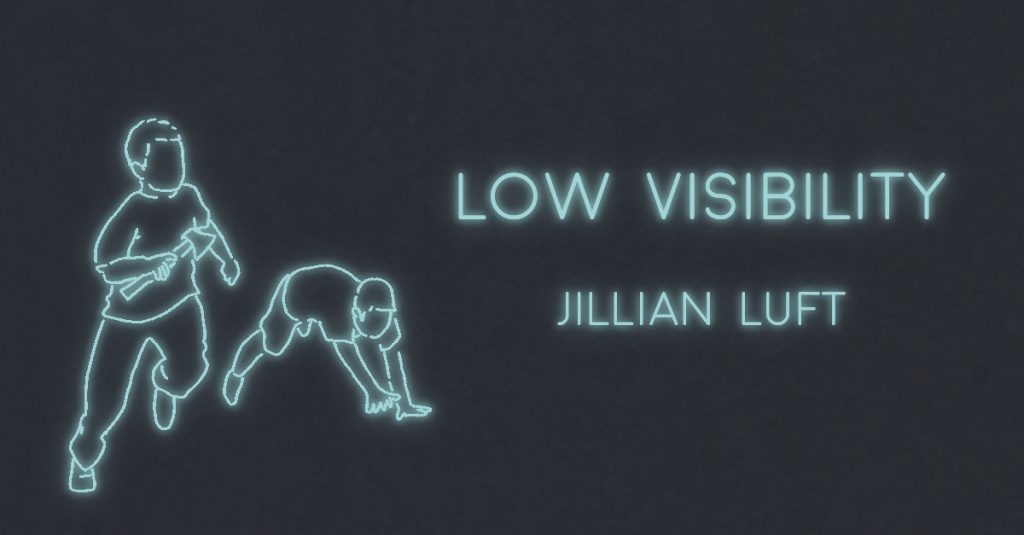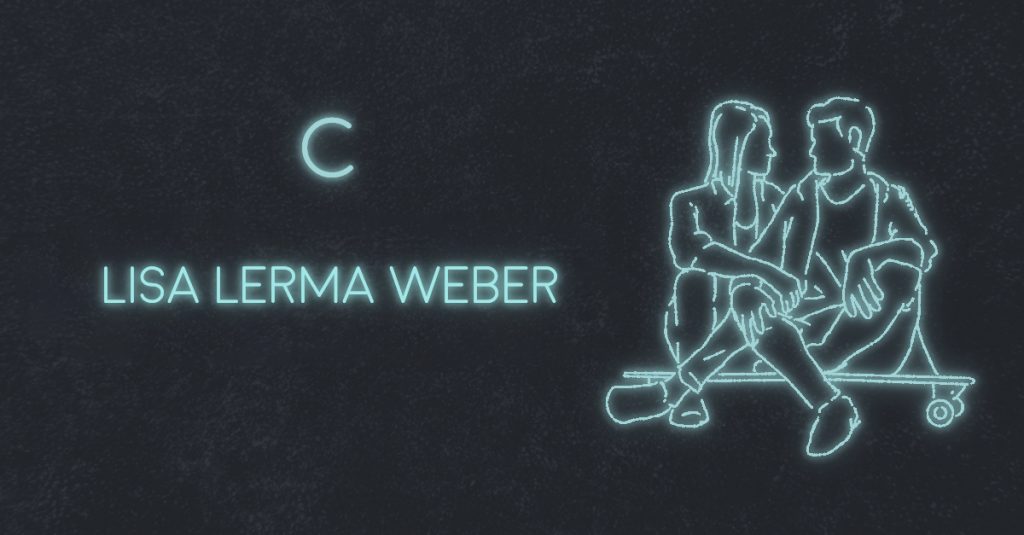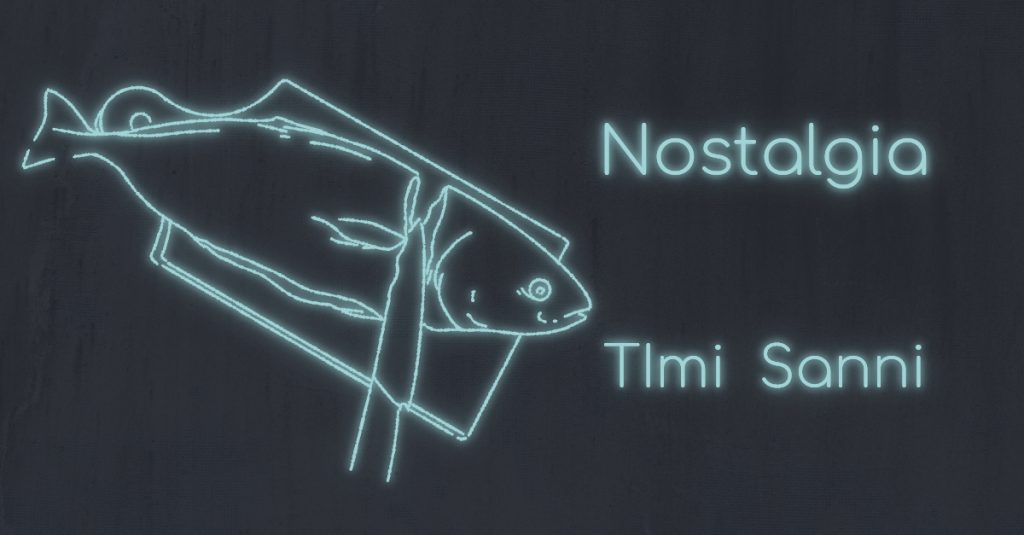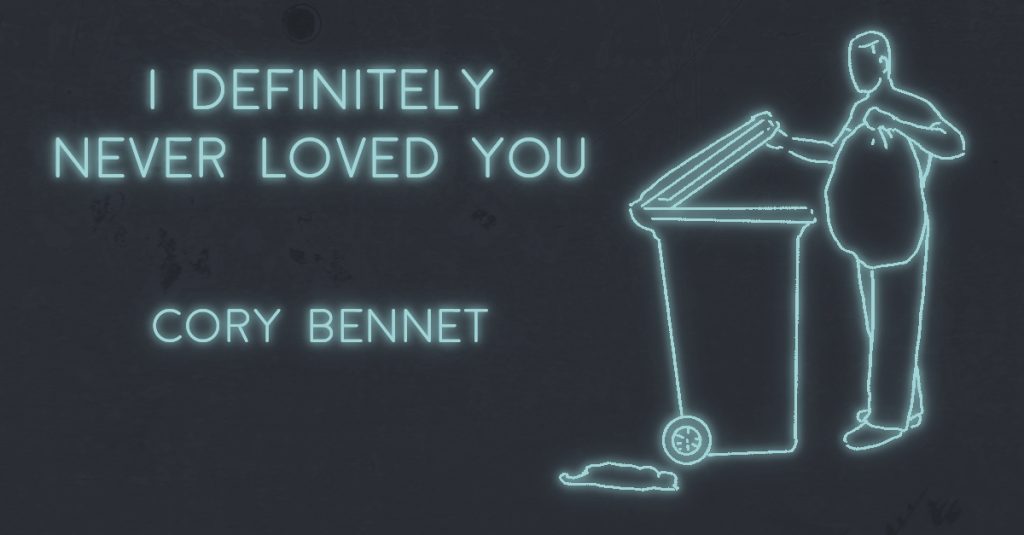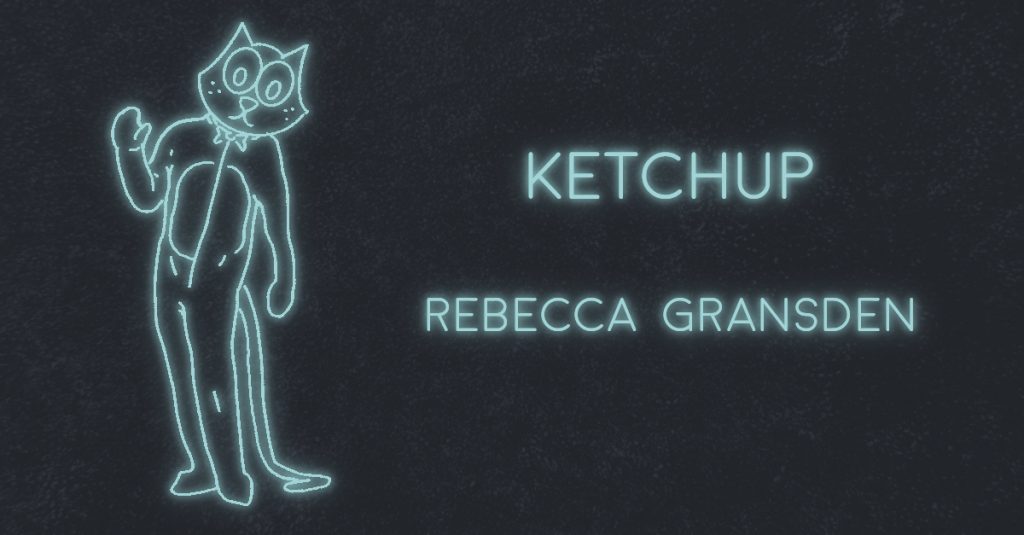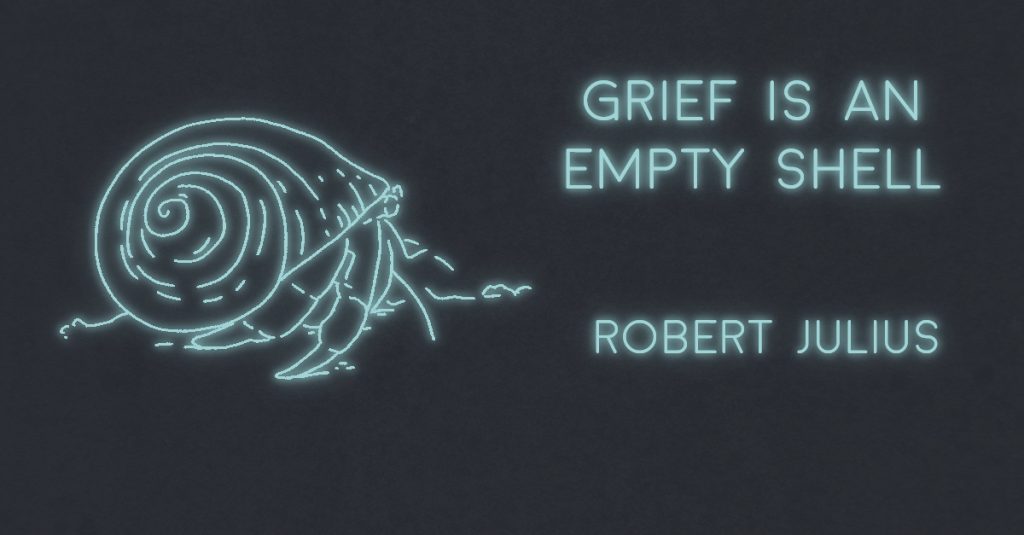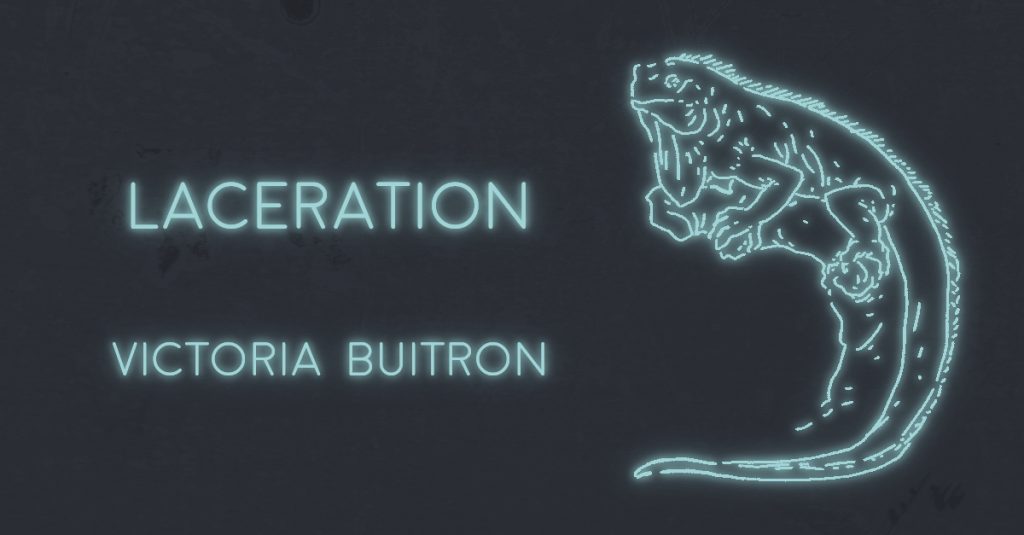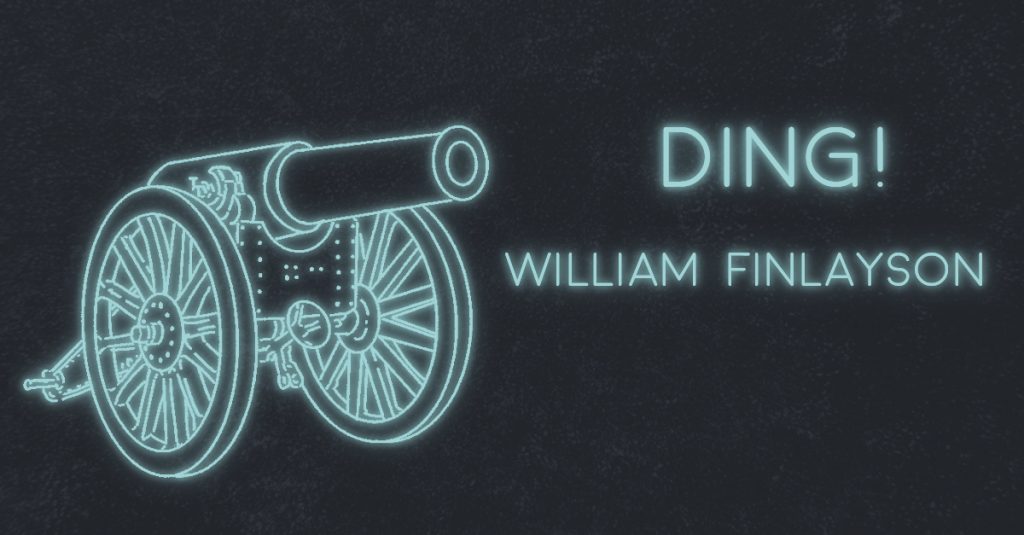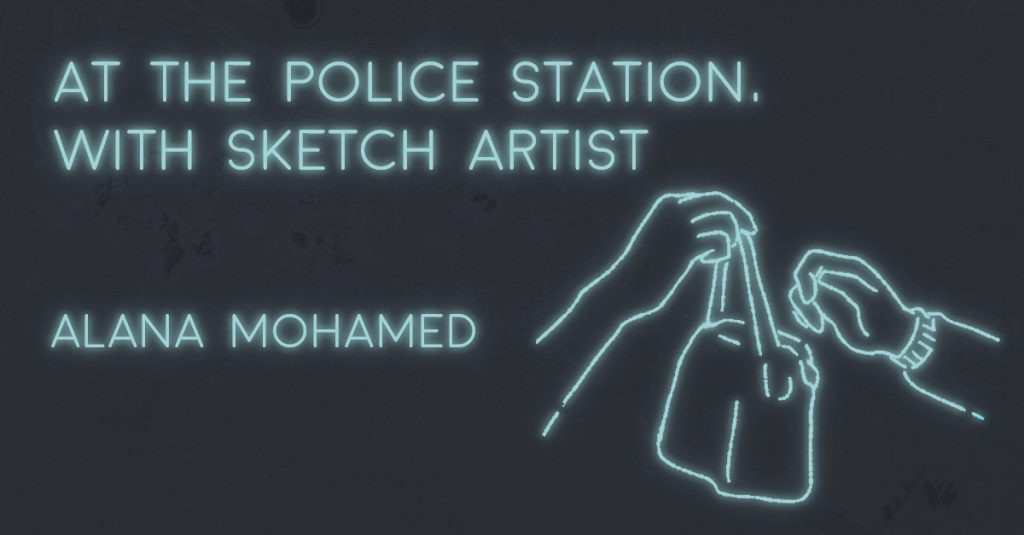
AT THE POLICE STATION, WITH SKETCH ARTIST by Alana Mohamed
The most startling thing about him was the realization that he must have been beautiful when he was younger. I like to look into people’s faces and imagine them other ways: older, younger, dying, terrified, on the brink of extreme cruelty. This man did not look capable of cruelty, though it was dark out and difficult to tell. He seemed like a good man who had grown up and seen life turn in on itself and now he was in a hard way, with such a striking face and such deep lines. It was a foggy Tuesday and I was…

